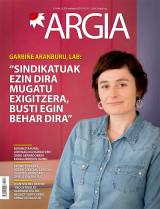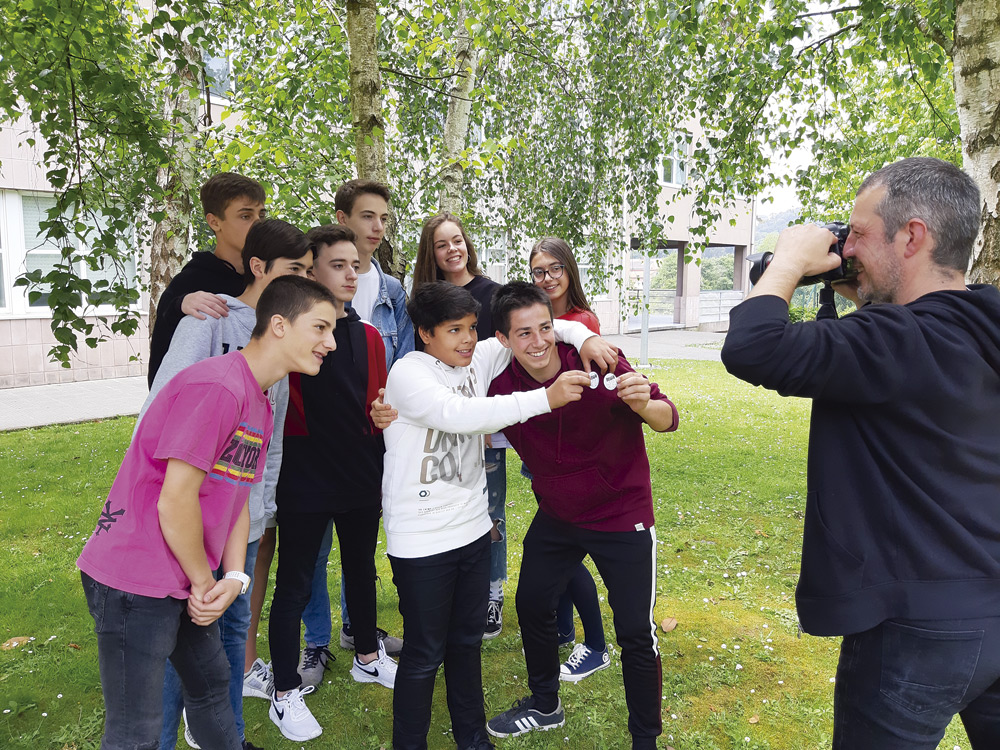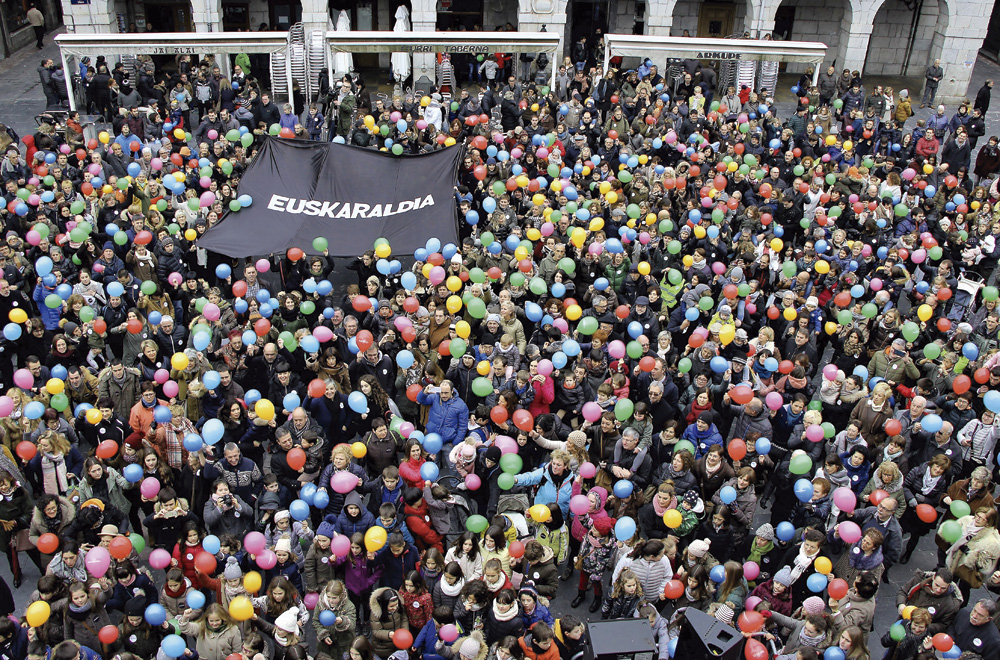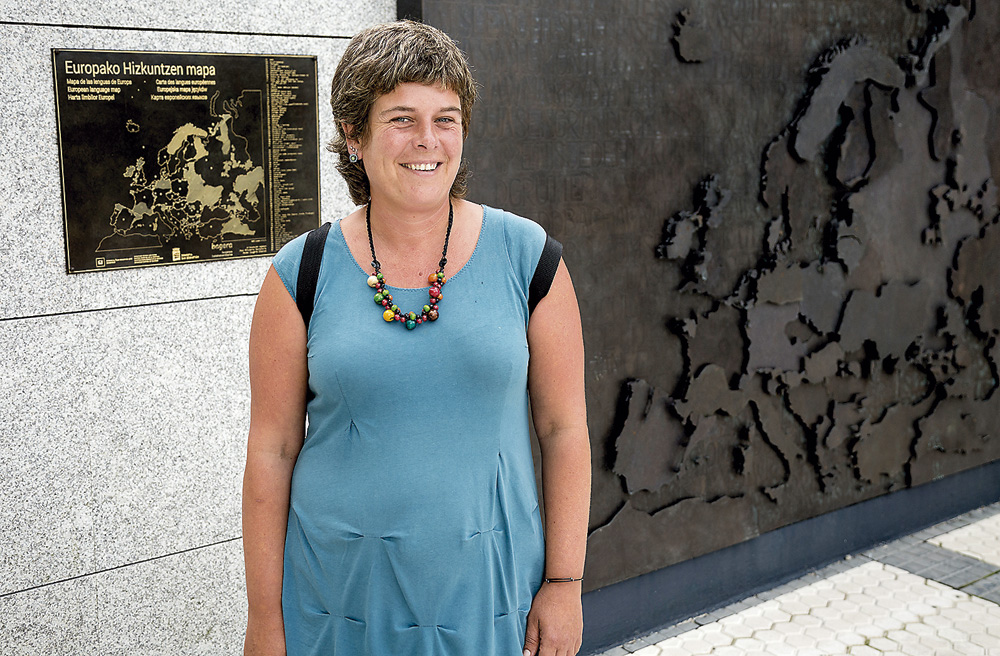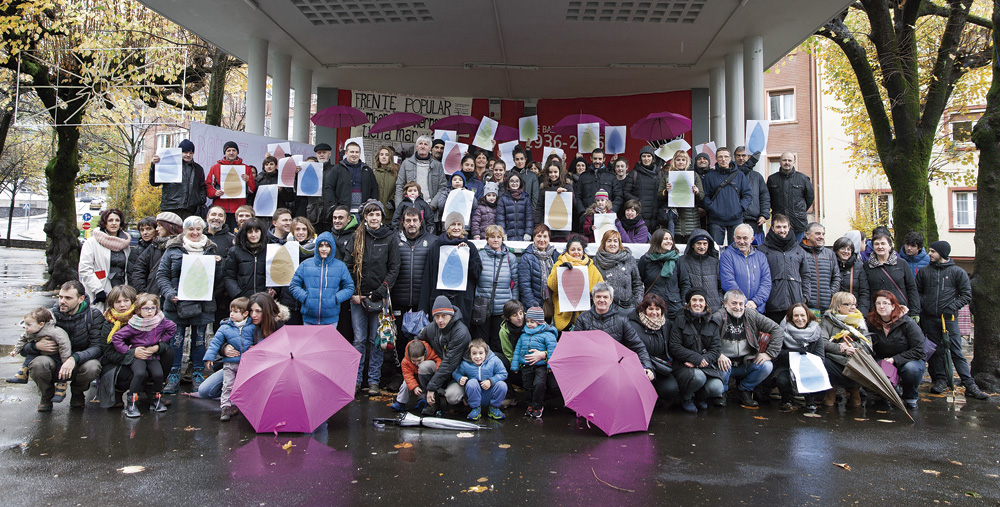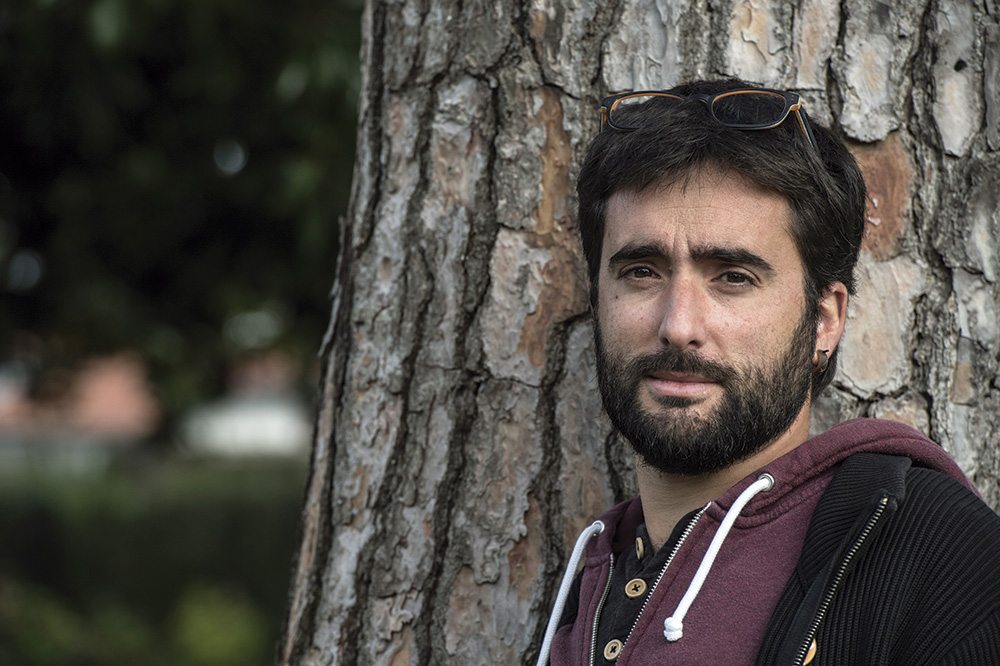Can the use of Euskera increase by 20% in one week?
- You have committed yourself. You made a list with your family, friends, colleagues and acquaintances. Everyone understands Basque. Your challenge will be to get them in Basque for a week. This challenge was carried out in Lasarte-Oria and the participants were asked three times about the use of Euskera. Before the challenge began, 62.4%; after a week of challenge, use increased to 83.8% and at three months was 81.3%.
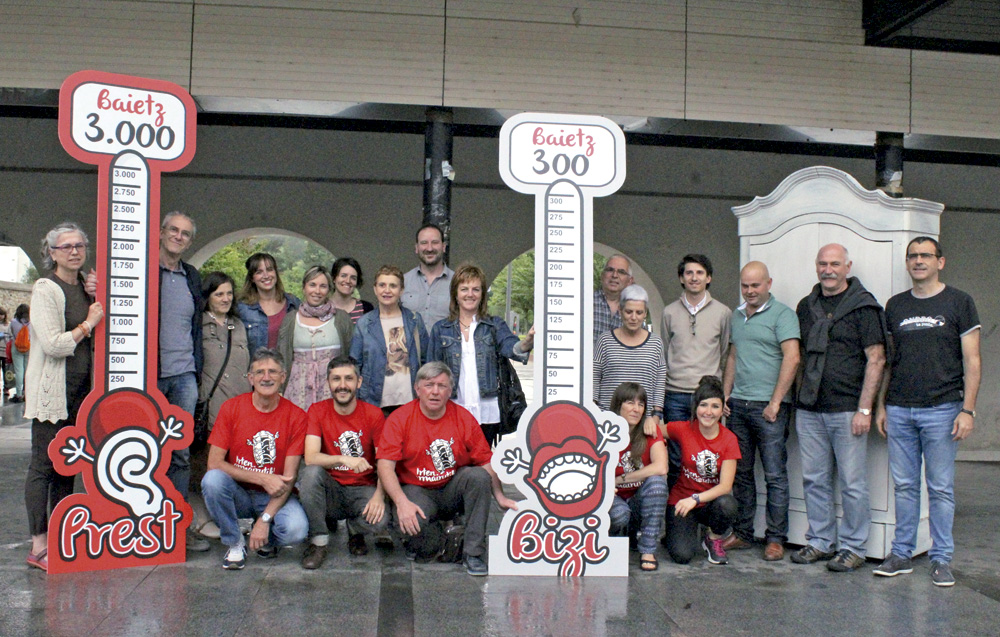
The data were offered at the Udaltop meetings, the Services of the Basque Town Councils, in Lasarte-Oria, and others, on May 11. From October 23 to December 3, 2016, the Ttakun Cultural Association and the Basque Service of the City of Lasarte-Oria carried out the challenge “Baietz 40 egun euskaraz!”. Taking advantage of the popular challenge, an investigation has been carried out and the UPV/EHU professor Pello Jauregi has presented the results of the research.
What was the profile of the “ahobizi”? A woman about 40 years old, with good ability to understand and speak in Basque and who developed the challenge especially with her family and friends
The most striking fact is the one we mentioned in the introduction. The “ahobizi” who participated in the challenge of a week – committed to speak in Euskera and placed the plate corresponding to that role on their chest – chose who they were going to work with in Euskera (family, friends, colleagues, acquaintances). It is understood that in the challenge of a week, in such a short period of time, the use increases easily, going from 62.4% to 83.8%. Pello Jauregi himself and many others have surprised that after three months the use has been maintained at 81.3%. In view of these data, several people were asked in the days: “How much will the percentage be in a year?”
What scope was there to improve the use of Euskera and how much had it risen in the challenge of a week and later? If the initial use was 62.4%, the margin of improvement was 37.6%. Well, in the challenging period, the use of the Basque Country increased by 56.9% of what could be improved. Three months later the percentage was 50%.
Question “belarripresti”: Have you been more talked about in Basque in the challenge than before? 74.5% say yes. The percentage goes down a lot at three months. Then, 27.8% say their family speaks Basque to him
In the results there are no surprises if we look at gender, age, type of relationships and the ability of Euskera. That is, the commitment to the use of Euskera by women or by men hardly differs in their evolution of use. Use does not rise or fall significantly if the “ahobizi” partner is familiar, friend, acquaintance, or partner. The language proficiency of the participant has not led to any change either. To mention something, although it is a very soft nuance, these are percentages by age. Young people between the ages of 16 and 30 have made the biggest leap in pre- and post-challenge data, and according to the survey responses three months later, young people have been the ones who have best addressed the change. The data are as follows: 60.1%, 84.7% and 84.7%, respectively.
If you talk to me in Basque... I won't stay behind
You are “belarriprest.” The commitment you have made is not only to speak in Basque, but thanks to the veneer you have put in your chest, you have given two messages to the “drowning”: “I understand Basque and I like you to talk to me in Basque.” Therefore, the “belarriprest” were asked the following question, in this case, six weeks of challenge: Have you spoken to more people than before in Basque during the challenge? And the positive response ranges from 64.9% to 77.4%. According to “Belarriprest”, it is the colleagues who have spoken the most in Basque. The arrogant, however, is reduced very significantly when the same question is asked at three months, that is, when a veneer that identifies him as “belarriprest” is no longer worn on the chest. Percentages, by area of relationship, go from 52.7% to 27.8%. The housekeepers are the ones who stop talking in Basque to the “belarriprest”.
And has the “belarriprest” had the tendency to respond in Basque to “drowning”? Thus, 75.8% of respondents said they had a tendency to use the Basque Country
Another question asked to the “belarriprestras” was: “Ahobiziak” constantly spoke to you in Basque, did you take the tendency to respond in Basque? According to researcher Pello Jauregi, the answers to this question show that there has been a tendency to symmetry, that is, despite not committing to Euskera, and despite the fact that the capacity of Euskera is often weak, the “ahobizi” have led theirs to the “belarriprest” and have been “polluted” by the Basque. 75.8% and 18% of the respondents stated that they have a tendency to use Euskera. Those who assume Spanish notoriously or moderately are 6.2%.
Euskaraldia, EAEko instituzio nagusi guztietan PSErekin gobernatzen duen PNVk Topagunearekin izenpeturiko akordio estrategikoa da, ez nik hala esaten dudako, beraiek publikoki 2017ko Udaltopean horrela aurkeztu eta definitu zutelako baizik. Eta Euskaraldia da PNVk, bere... [+]
Guk dakigula ez dute halakorik egin, baina Alberto Irazu kazetariak euskaraz egin du elkarrizketa zuzenean Radio Euskadin, ia 20 minutuko esperimentua.
Hernaniarrek errodajea dute, eta 2018ari begira pentsatu dute ez direla udazkeneko hotzen zain egongo. Urte osoan saiatuko dira 24 orduz euskaraz egiten. Euskara Ari Du elkartea sortu berri dute horretarako.
Aurten gehiegi pentsatu beharrik ez dago, zer egingo dugu bertso saioa, ginkana, txokolate jana, mosaikoa, lipduba? Horiek ere egingo dira, baina herri dezentetako herritarrek eta euskalgintzak motorrak berotuta dituzte. Kalera aterako dira egun osoz euskaraz egiteko asmoz.
Sustatzaile nagusi Euskaltzaleen Topagunea eta Eusko Jaurlaritza ditu. Xedea 2018ko udazkenean Euskal Herriko txoko guztietan herritarren hizkuntza ohiturak aldatzeko praktikak egitea da.
Establezimenduen zerrenda egin dute euskaraz aritzeko duten gaitasunaren arabera. Udazkenean, beste herri askotan bezala, derioztarrak “ahobizi” eta “belarriprest” bilakatuko dira.
Errenteria, Oiartzun, Pasaia eta Lezon 110 lagunek konpromisoak hartu dituzte euskara erabiltzeko.
Baiona, Angelu eta Miarritze artean egingo dute ekimena, azaroaren 27tik abenduaren 3ra bitartean. 450 hiztun mobilizatu nahi ditu BAM ekimenak. Antolatzaileek euskaraz “naturaltasunez eta alaitasunez” aritzeko deia egin dute.
Ekimen berria du Aiaraldeko Euskalgintza Kontseiluak esku artean: 1.000 ahobizi eta 5.000 belarriprest “armairutik" ateratzea. Euskaraz hitz egiten dakitenen eta hizkuntza ulertzen dutenen arteko zubiak eraikitzea da egitasmoaren xedea. Astebeteko lau txanda egingo... [+]









